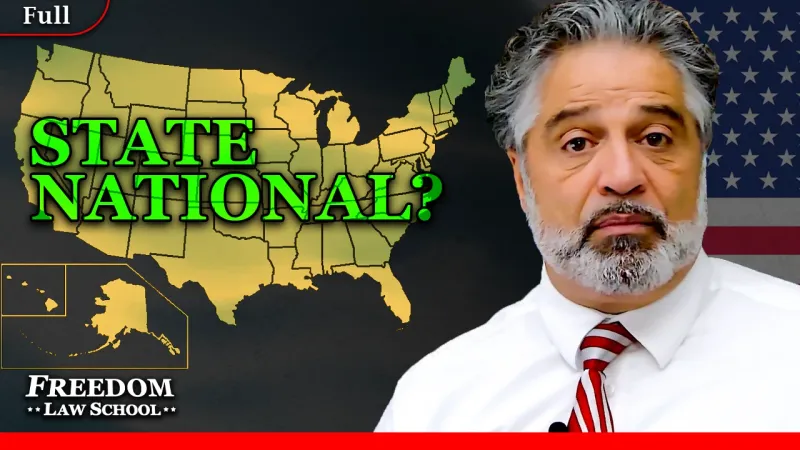State National

In the income tax freedom movement, some alluring teachers use the term ‘[American] State National’ (aka “sovereign citizen”) to describe a fictitious citizenship status, aiming to liberate themselves from the constraints of U.S. law.
Sovereign citizens believe that the existing American governmental structure, including the courts and law enforcement, is illegitimate and that they retain an individual common law identity exempting them from the authority of those fraudulent government institutions. They may issue their own driver’s licenses and vehicle tags, create and file their own liens against government officials who cross them, question judges about the validity of their oaths, challenge the applicability of traffic laws to them, and in extreme cases, resort to violence to protect their imagined rights.
Sovereign citizens speak an odd quasi-legal language and believe that by not capitalizing names and by writing in red and using certain catchphrases, they can avoid any liability in the judicial system.
Read this excerpt from a State National promoter’s page:
As a completely unincorporated Person, a State National is sovereign and private and generally immune from prosecution until and unless they take some action that causes actual physical harm to someone else or someone else’s property, whereupon they are subject to the Common Law of the County and State where they live or where the alleged crime is committed. (Source)
You read that right, American state nationals and sovereign citizens claim that they are immune from prosecution unless they cause physical harm to person or property. Does this work? No.
Sovereign citizens’ tactics often succeed in delaying legal proceedings, and may occasionally confuse or exhaust public officials. However, their arguments are never upheld in court. (Source and Reference)
Other SovCit-related theories
Can I claim sovereign citizenship? Does using a ZIP code make me part of DC? Does my name in CAPITAL LETTERS refer to my straw man? Am I out of the federal government’s jurisdiction?
These theories are what Freedom Law School refers to as “baseless legal theories” or “patriot mythologies.” With the ease of internet communications, these baseless theories spread like weeds, offering fantasy solutions to common Freedom and Tax Honesty Movement issues. They sound great, but in reality do not work. Unfortunately, in dealing with the corrupt IRS and U.S. government, there are no “silver bullet” miracle cures.
Ultimately, the focus is not solely on the technical accuracy of a theory, but rather on its practical effectiveness and likelihood of being upheld in court. The sovereign citizenship theory, like many others, does not work in practice. Rather than dabbling in a multitude of unfounded theories, stick with what has been proven effective. Check out Freedom Law School’s seven steps and our track record of court victories.